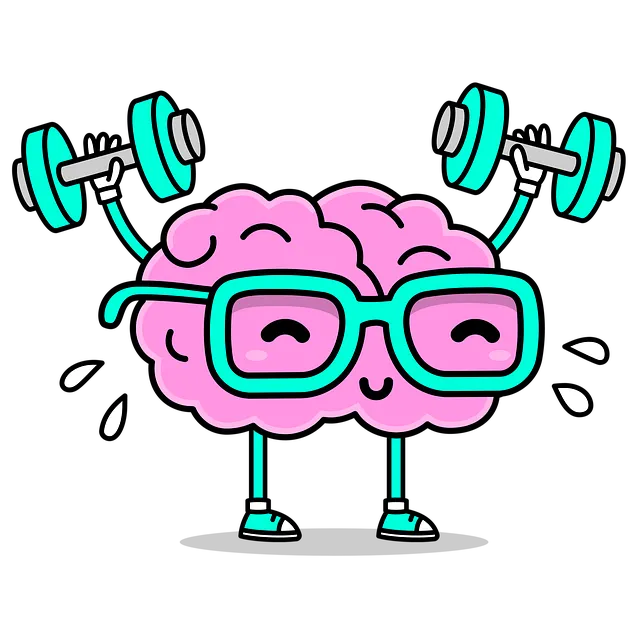Kaiser Permanente mental health facilities in Superior utilize the Resilient Factors Model (RFM) to provide transformative care, empowering patients with holistic coping mechanisms through emotional intelligence and cultural sensitivity. By integrating conflict resolution techniques, wellness coaching, and emotional healing, this approach enhances patient outcomes, fostering long-term resilience. Evidence-based practices tailored to individual needs, such as empathy-building, mindfulness, and confidence-boosting initiatives, contribute to mental fortitude. Success is measured through KPIs like improved emotional intelligence and reduced stress levels, with continuous improvements to RFM programs ensuring the well-being of both staff and clients.
“Discover how resilience-focused interventions can transform mental healthcare with the Robust Framework Method (RFM). This article explores a powerful approach to enhancing patient well-being, drawing from the successful strategies of Kaiser Permanente. We delve into their model for building resilience at a leading mental health facility, showcasing practical exercises that foster adaptability and recovery. By implementing these techniques, superior outcomes can be achieved, as measured by the profound impact on patients’ mental health journeys.”
- Understanding RFM and Its Significance in Mental Health Care
- The Kaiser Permanente Approach: A Model for Resilience Building
- Implementing Exercises for Enhanced Resilience at a Mental Health Facility
- Measuring Success: Evaluating the Impact of RFM Programs
Understanding RFM and Its Significance in Mental Health Care

At a superior mental health facility like Kaiser Permanente, understanding and implementing Resilient Factors Model (RFM) is more than just a strategy; it’s a transformative approach to care. RFM focuses on identifying and cultivating resilient factors within individuals, thereby enhancing their ability to cope with life’s challenges. This model recognizes that building resilience isn’t just about overcoming adversity but also about fostering emotional intelligence and cultural sensitivity in mental healthcare practice.
By integrating RFM into care plans, Kaiser Permanente mental health facilities can significantly contribute to public awareness campaigns development. This approach encourages patients to develop coping mechanisms that go beyond traditional therapy, promoting a holistic view of mental wellness. It empowers folks to navigate life’s labyrinthine paths with greater ease, ensuring they emerge not just surviving but thriving.
The Kaiser Permanente Approach: A Model for Resilience Building

The Kaiser Permanente Approach offers a comprehensive model for resilience building within mental health facilities. This method leverages a combination of Conflict Resolution Techniques, Mental Wellness Coaching Programs, and Emotional Healing Processes to create a supportive environment that enhances patients’ coping mechanisms and overall mental wellness. By integrating these strategies, superior care is provided, enabling individuals to navigate life’s challenges with increased resilience.
The approach prioritizes individualized care plans tailored to each patient’s unique needs. Through structured programs and one-on-one coaching, patients develop effective communication skills, build emotional intelligence, and gain tools to manage stress and adversity. This holistic method not only addresses immediate mental health concerns but also fosters long-term resilience, ensuring individuals are better equipped to thrive in various aspects of life.
Implementing Exercises for Enhanced Resilience at a Mental Health Facility

Implementing resilience-building exercises at a Kaiser Permanente mental health facility can significantly enhance patient outcomes and overall well-being. These structured activities aim to equip individuals with effective coping mechanisms, fostering a sense of empowerment and adaptability in the face of challenges. By integrating evidence-based practices tailored to the unique needs of the population served, the facility can create a supportive environment that promotes growth and recovery.
Resilience exercises go beyond traditional therapy by incorporating various strategies like empathy-building activities, mindfulness practices, and confidence-boosting initiatives. For instance, group sessions focused on sharing personal experiences and offering support can enhance social connectedness and foster a sense of belonging. Self-esteem improvement techniques, such as positive affirmation exercises, empower individuals to challenge negative self-perceptions and cultivate a more optimistic outlook. Ultimately, these interventions contribute to the development of mental fortitude, enabling patients at the Kaiser Permanente facility to navigate life’s complexities with greater ease and resilience.
Measuring Success: Evaluating the Impact of RFM Programs

Measuring Success: Evaluating the Impact of RFM Programs at Kaiser Permanente mental health facility Superior is a crucial step in understanding the effectiveness of these initiatives. By implementing robust evaluation strategies, we can assess whether the programs are fostering resilience and enhancing emotional healing processes among participants. This involves tracking key performance indicators (KPIs) such as improved emotional intelligence, reduced stress levels, and enhanced coping mechanisms over time.
The Risk Assessment for Mental Health Professionals plays a vital role in this process, enabling us to identify individuals who may be at higher risk of burnout or other mental health challenges. Regular assessments help tailor interventions and ensure that support is provided when it’s most needed. Through these evaluations, Kaiser Permanente can continuously improve its RFM programs, making them more impactful and ensuring the well-being of both staff and clients in a dynamic healthcare environment.
The implementation of Resilient Factors Model (RFM) exercises at superior Kaiser Permanente mental health facilities demonstrates a promising approach to enhancing patient resilience. By integrating RFM into care plans, these facilities are taking a proactive step towards improving mental well-being and fostering adaptability in their patients. The success of this model, as evidenced by the measured impact on RFM programs, underscores its potential to revolutionize mental health care, providing tools that empower individuals to navigate life’s challenges with greater strength and perseverance.






